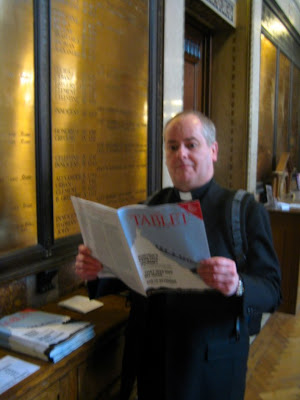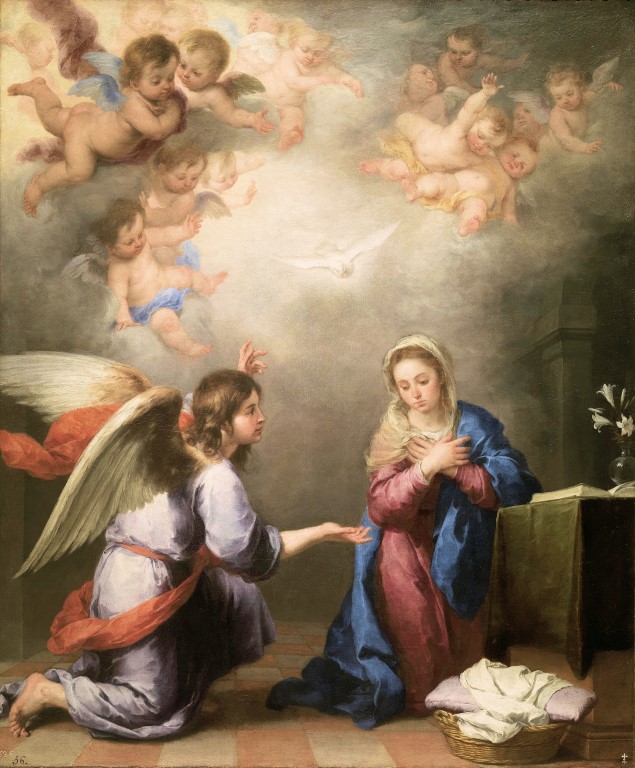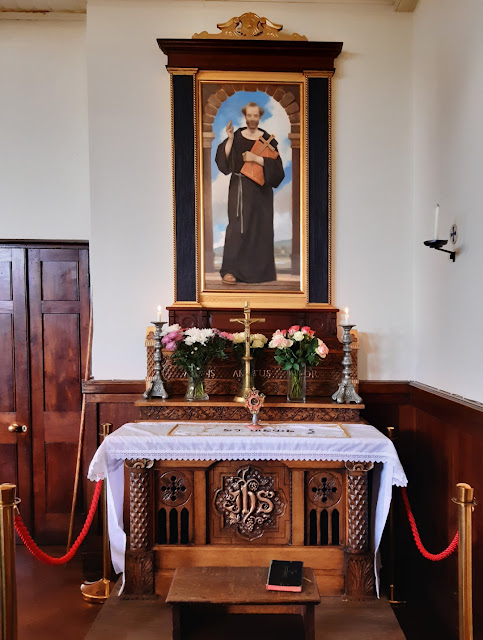Responding to the Tablet - legally compliant version
 Today, bloggers Fr Ray Blake, Jane and I met up at the Ha Ha bar at Victoria for lunch. Fr Blake suprised me at Westminster Cathedral while I was being horrified by the latest issue of the Tablet. Can someone tell me - why is this paper on sale at the Cathedral?
Today, bloggers Fr Ray Blake, Jane and I met up at the Ha Ha bar at Victoria for lunch. Fr Blake suprised me at Westminster Cathedral while I was being horrified by the latest issue of the Tablet. Can someone tell me - why is this paper on sale at the Cathedral?The Tablet have contacted me to say that my fisk of the article "That was not my Mass" was a breach of copyright and would I remove it. The last ditch liberals really do not understand the internet, do they?
OK, the article is down. Now here is my legally compliant review, with only little bits quoted in accordance with the "fair use" provision, and the rest reported in my own words. (The previous version allowed complete fairness to the author of the article by quoting her words exactly.) Following the Zuhlsdorf convention, at various points, there are my emphases in black and my comments in red. It's a bit ragged in places and you can see the joins - but hey! I'm not spending all night on this nonsense.
I must add a little extra to this revised post from information received. I understand that the Tablet was indeed intending to "have a go" at a parish that offered the usus antiquior. Another Southwark parish was in the crosshairs but mine was set as the target because there were a few parishioners prepared to go on record. I also hear that the Tablet regards the Catholic blogosphere as a "tiny conservative world". As I say - they just don't understand the internet. If you tot up the combined readership of the Catholic blogs which have written on this issue, they have a daily readership far in excess of the Tablet's weekly circulation. One reason for that low circulation is that the Tablet thinks that enforcing copyright on the internet helps their cause. Bwahahaha!
A review and observations on the article "That was not my Mass" by Elena Curti, published in The Tablet.
The heading of this article sets the tone:
A review and observations on the article "That was not my Mass" by Elena Curti, published in The Tablet.
The heading of this article sets the tone:
... 40 years ago blah blah sentiment reversed... Tridentine rite ... Blackfen ... split the parish
The exordium gets us in the mood: "Each Sunday at around 9.45 a.m." [or earlier - youngsters get there up to an hour before Mass to help prepare] a team at Our Lady of the Rosary, blah blah gold crucifix... candlesticks... flowers... altar cards... old Latin Mass. "Welcome to the parish of Fr Tim Finigan."
Then we hear how Fr Finigan, "step by step", [that is, gradually, with explanations, over a couple of years] introduced the Extraordinary Form and "split the parish." [Ah yes, the "split" - that's a key point of the article - but in fact the vast majority of parishioners just come along to whichever Mass they want, and wonder what all the fuss is about. What hurts them is the bad atmosphere caused by vehement complaining and controversy. This is not helped, of course, by airing it all in the press.]
Elena Curti said:
A claim was reported that the people who welcome the older form of the Mass are predominantly newcomers living outside the parish. The claim is false.
Then there was some stuff about only "Six parishioners" wanting the "Latin Mass." I have no idea where that number comes from: there are far mor than that. There was also the obligatory use of the word "imposed." The usus antiquior is not imposed on anyone - we have four weekend precept Masses, three of them in English in the novus ordo.
Elena Curtie wrote:
Perhaps the most unpleasant part of the article was where Elena Curti said:
Over the past few years, helped by many parishioners, I have also, among other works, replaced the roof, floor, heating and lighting in the Hall, put in disabled toilets and levelled the entrance, repainted the interior of the Church, replaced the roof on two areas, replaced the guttering, replaced the public address system, put in an industrial spec kitchen in the Club (for the lunch club to provide lunch every week for 40 elderly people without falling foul of health and safety law).
We also raise money regularly for the Bexley Deanery Third World Project, Aid to the Church in Need, the Manna Centre for the Homeless, the Bexley Centre for the Unemployed, the Good Counsel Network, and Cardiac Research in the Young to name but a few. In place of CAFOD, I send our Family Fast Day money to the Pontifical Council Cor Unum (which CAFOD is a partner of, I think.) That way, we support the Church's development work without contributing to glossy advertising or a questionable policy on HIV prevention.
Fr Z today quotes a famous remark of Pope Benedict when he read a negative article about him in an Italian daily:
The exordium gets us in the mood: "Each Sunday at around 9.45 a.m." [or earlier - youngsters get there up to an hour before Mass to help prepare] a team at Our Lady of the Rosary, blah blah gold crucifix... candlesticks... flowers... altar cards... old Latin Mass. "Welcome to the parish of Fr Tim Finigan."
Then we hear how Fr Finigan, "step by step", [that is, gradually, with explanations, over a couple of years] introduced the Extraordinary Form and "split the parish." [Ah yes, the "split" - that's a key point of the article - but in fact the vast majority of parishioners just come along to whichever Mass they want, and wonder what all the fuss is about. What hurts them is the bad atmosphere caused by vehement complaining and controversy. This is not helped, of course, by airing it all in the press.]
Elena Curti said:
Between 30 and 40 people no longer attend the church and a similar number have taken their place. [Hmmm. In these suburban parishes, over the course of a year or so, there are at least that number coming and going for all sorts of reasons.]
Elena Curti said:
The row about numbers has become so heated that supporters of Fr Finigan carefully count the numbers attending the Sunday morning old-rite Mass. [We have long counted all the numbers at all the Masses. More recently, the accuracy of these counts has been made an issue. It has been important to counter the claim that the usus antiquior Mass is not well supported. 135 came last Sunday. Total at the four masses, about 550.]
It was said that Bishop Pat Lynch, had been called in to mediate. [Not quite. He was complained to, and generously took time to meet various people and advise on bringing peace in the situation.]
My parish was referred to as "fairly typical" - it still is, in may ways.Much was made of the fact that there are no extraordinary ministers of the Eucharist, that altar rails have been installed and that the parish priest "makes it clear that he prefers communicants to kneel and to receive the Host on the tongue." [I have passed on the insights of Archbishop Ranjith, Bishop Schneider and others, and mentioned the example of Pope Benedict. As with other matters, this is not about what "I prefer" but about what is best.]
My parish was referred to as "fairly typical" - it still is, in may ways.Much was made of the fact that there are no extraordinary ministers of the Eucharist, that altar rails have been installed and that the parish priest "makes it clear that he prefers communicants to kneel and to receive the Host on the tongue." [I have passed on the insights of Archbishop Ranjith, Bishop Schneider and others, and mentioned the example of Pope Benedict. As with other matters, this is not about what "I prefer" but about what is best.]
It was mentioned that at the Sunday evening Mass in the new rite, there are no bidding prayers and the congregation is not invited to exchange the sign of peace. [At the other new-rite Sunday Masses, these things are all available.] Then we have the great liberal war cry: "Fr Finigan says the Eucharistic Prayer with his back to the congregation."
A claim was reported that the people who welcome the older form of the Mass are predominantly newcomers living outside the parish. The claim is false.
Then there was some stuff about only "Six parishioners" wanting the "Latin Mass." I have no idea where that number comes from: there are far mor than that. There was also the obligatory use of the word "imposed." The usus antiquior is not imposed on anyone - we have four weekend precept Masses, three of them in English in the novus ordo.
Elena Curtie wrote:
The group [nine parishioners] describe feelings of irritation, discomfort and sadness at the changes that have been made. Those who prefer to stand for Communion and receive it in the hand say they feel selfconscious doing so at Fr Finigan’s Masses. [I never do anything to indicate disapproval of someone receiving Holy Communion correctly according to the current norms. Many people have told me of how priests have made difficulties for them receiving on the tongue. As for kneeling when everyone else is standing - well we all know how that goes down.]Elena Curti also wrote:
Rules introduced include an insistence on silence in the church before and after Mass, [Rules? I periodically ask people not to hold conversations in the Church so that others are left free to pray if they want to. Some people just ignore this.]It was reported that critics complained that there was little opportunity for parishioners to meet socially after Mass. In fact, whenever I talk about silence in Church, I always affirm the importance of social interaction outside or in the Hall.
Perhaps the most unpleasant part of the article was where Elena Curti said:
There were also complaints about their priest’s refusal to support Cafod, his expenditure on traditional vestments and other clerical garb, the absence of a parish council and failure to account to parishioners how money from the collection plate was being spent.I consider this to be a cheap shot and address the matter below.
The article then went on to describe how the matter began when Bernard Wynne, a retired management consultant, set out his grievances in an email to me, several other parishioners and, (though this was not mentioned) the Archbishop and the Area Bishop. One email was quoted which is in the public domain and illustrates the problem of understanding that it was necessary for me to address:
“I grew up with the Latin Mass and remember sitting watching men and women saying the Rosary, slyly reading the newspaper or making responses they didn’t really understand. The English Mass made us participants and co-celebrants in the sacrifice of the Mass. The instruction to ‘open the windows and doors’ is one of the most liberating things to happen in the Catholic Church. If you listen carefully you can hear them being shut in Blackfen.”My response was reported as "a 35 page essay." In fact the emails to which I was responding ran to a total of over 20,000 words and included many misconceptions regarding the Liturgy (such as the above) which I felt it necessary to address. You can read my response here: Sacred and Great.
My address to the LMS was also mentioned - as the real strategy behind all this. I did indeed refer to priests as the "infantry" who needed to overcome "problems and difficulties" over the introduction of the extraordinary form into parishes. One problem would be overcoming the idea that the laity are "co-celebrants" with the priest (a doctrinal error condemned by Pope Pius XII.) The reference to "infantry" was an allusion to the phrase "poor bloody infantry" who are at times attacked by both officers and civilians. This sometimes ring true for parish clergy.
The article correctly represented my opinion, confirmed by other priests with reference to most things that happen in parishes, that there are a few who are very much in favour, a few who are strongly against, and “the substantial majority who simply wonder what Father is doing now”.
Then there was the "stable group" thing. I was reported as "admitting" that there was not a stable group. There certainly is a stable group - what I did not do was to get them to draw up a petition etc. I read SP as allowing the pastor to introduce the usus antiquior for pastoral reasons and felt it was more honest to do just that. (See my post 'If ... but not "only if"'). I think that Cardinal Hoyos supports this position.
Of the parishioners who support the Benedictine project of reform and continuity, one who was quoted, Wendy Kane, a mother of seven-year-old twins was reported as living "just outside the parish boundary". Why mention this? In suburban parishes, many people going to any particular Church will live "just outside the boundary." Wendy said:
“The extraordinary form is not what I grew up with and I never experienced it before. I personally find it a beautiful form of worship.” [And her boys are very eager to start serving as soon as they have made their first Communion, and her husband is being received into the Church this Easter.]
Julia Jones, a 38- year-old teacher was also quoted:
“I have been very moved by the silence and palpable feeling of devotion, especially during the Eucharistic Prayer. I have gained greatly from the experience in only a few months. I really do believe that I have found ‘the pearl of great price’.”Bishop Lynch was reported as saying that the parish needed to build communion through prayer and social activities so that we have a situation where people respect diversity but can also come together,” he said. [I heartily concur - and many thanks to Bishop Lynch for his tactful interventions at every stage.]
Elena Curti concluded her article:
Some welcome what Fr Finigan is doing. It is equally clear that some do not. If Fr Finigan is right, and the priest’s responsibility for the liturgy in his parish is absolute, [It is not absolute, it is subject to the law of the Church. Pope Benedict more than once pointed out that even the Pope is subject to the tradition of the Church.] there is nothing parishioners can do about it. And there could be many more Blackfens in the future. [I must get a parish anthem going (ouside the Liturgy, of course) - something along the lines of "There's only one Blackfen!"]Just a note on finances. The bit about vestments and clerical garb (Boo! Hiss!) is, as I said, a cheap shot. It is a part of my responsibility to ensure that there are dignified vestments for the Liturgy. Gradually, over 11 years, I have spent judiciously in accordance with our budget to secure worthy vestments. I have also recovered a substantial quantity of vestments and other liturgical artefacts free of charge from people who did not have any use for them (i.e. might have thrown them out.) "Clerical garb" probably refers to things like my cassock and Ferraiuolo etc. These come out of my own pocket - thankfully, the parishioners as a whole are very generous at Christmas and Easter (significantly more generous this Christmas than usual).
Over the past few years, helped by many parishioners, I have also, among other works, replaced the roof, floor, heating and lighting in the Hall, put in disabled toilets and levelled the entrance, repainted the interior of the Church, replaced the roof on two areas, replaced the guttering, replaced the public address system, put in an industrial spec kitchen in the Club (for the lunch club to provide lunch every week for 40 elderly people without falling foul of health and safety law).
We also raise money regularly for the Bexley Deanery Third World Project, Aid to the Church in Need, the Manna Centre for the Homeless, the Bexley Centre for the Unemployed, the Good Counsel Network, and Cardiac Research in the Young to name but a few. In place of CAFOD, I send our Family Fast Day money to the Pontifical Council Cor Unum (which CAFOD is a partner of, I think.) That way, we support the Church's development work without contributing to glossy advertising or a questionable policy on HIV prevention.
Fr Z today quotes a famous remark of Pope Benedict when he read a negative article about him in an Italian daily:
"If I don’t read an article like that every week or so, I have to examine my conscience."Admirable - but daunting. A man to admire and emulate not only in liturgical matters.


